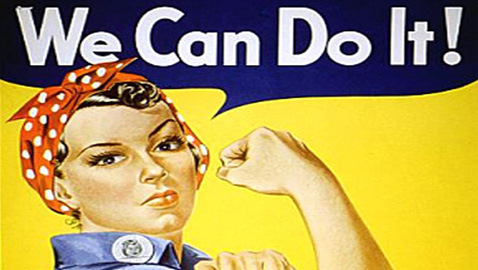Study Says For Economic Growth, Enable Women To Achieve Their Clout And Potential In The Marketplace
Post Views 1
Report after report has confirmed that over the next ten years a billion women will have entered the global economy. Will that add to economic empowerment or will their entry be derailed by male hegemony? Will their potential be curtailed or will they ensure that there are level playing fields for both genders?
A new study from Booz & Co, titled “Empowering the Third Billion: Women and the World of Work in 2012,” suggests measures that the governments and the prospective women worker employers can adopt to ensure that their entry is successful.
The study makes for interesting reading inasmuch it challenges existing manifestations of what a women’s potential is. Current analysts always point out to women being victimized and point to gender disparities across the world, especially in Islamic and developing countries and say that there are many more barriers that a woman faces when compared to their male counterparts, who have a relatively easier passage into the workplace.
Experts opine, and with an element of truth, that women face inequality in educational opportunities, that they are paid much less for doing the same jobs as men. However, even though they gripe and complain they do not offer any worthwhile solutions to address the gender issues.
The Booz study treads a different path and focuses wholly on working women and checks out if there is, and what it is that is preventing them from realizing their true worth and potential. But unlike other surveys, they take it a further and explain what steps need to be taken to ensure that the working women can actually positively impact and make a difference to their country’s economy.
The Booz study says there are two prime reasons why educated women cannot work to their full potential and what differentiates them from men.
The duty to care for the children, the elderly, the ailing is traditionally a women’s duty. From eons they are the primary care providers at home. This additional encumbrance weighs them down and takes huge toll of their time and energy.
The study says that women in OECD countries spend around 2.4 hours every day, more than the men on such care giving work. Not only do they contribute their time but a considerable part of their salary goes in this work, which is largely unpaid.
The study says that eldercare is a compelling problem for women professions that prevents them from advancing. In most countries around the world there is a cultural doggedness that it is a women’s duty to look after the parents. This, the report says, forces them to dilute their career goals and in many cases quit the workforce and commit themselves fulltime to work at home.
The Booz survey warns that with better medical care and the resultant longevity, care giving for the elderly will only increase, further aggravating the problem.
Milestones, for working women may face road blocks like uneven pay ratios. The report says that women regularly face wage-prejudice across the board, irrespective of the country.
The study says that these problems can be solved by companies who realize that these issues are preventing their women from giving off their best and living up to the talent they possess. Employers must address child and eldercare issues and find workable solutions. They must fashion procedures and programs that guard, sustain, and uphold women’s aspirations and goals.
Booz says that even minor intrusions into such women growth barriers will make a major difference. It says that if female employment rates were to be equal to male employment rates in America, its overall GDP would go up by 5 percent. In Japan it would increase it by 9 percent and in developing countries the growth would be in double figures, whereas in countries like Pakistan and some Middle East and African countries the growth would dramatically escalate by as much as 50 percent.
Study Says For Economic Growth, Enable Women To Achieve Their Clout And Potential In The Marketplace by Harrison Barnes


 Redbubble Supports Artists and Jobs
Redbubble Supports Artists and Jobs  Global Unemployment Rates for Young Adults Remain High
Global Unemployment Rates for Young Adults Remain High  Be a Part of the Team Making Presentations Fun
Be a Part of the Team Making Presentations Fun  General Assembly Places Education First
General Assembly Places Education First  Help Take on the Tech World in a Job with OneLogin
Help Take on the Tech World in a Job with OneLogin  9 Tips to Help You Prepare to Work Abroad
9 Tips to Help You Prepare to Work Abroad  Join Atlassian for an International Job
Join Atlassian for an International Job